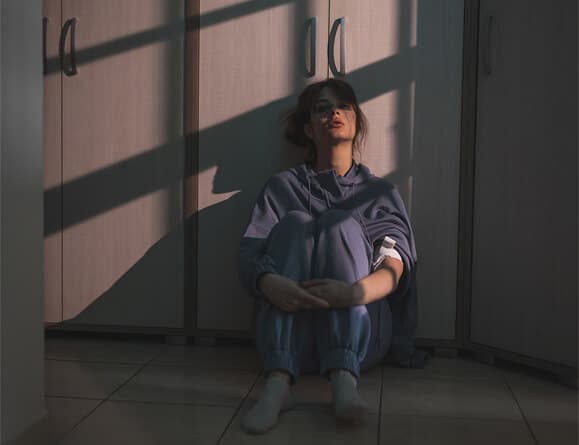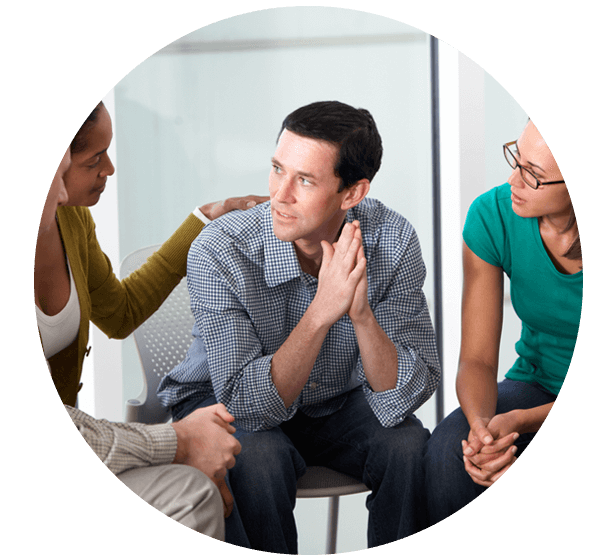Opioid Addiction Treatment
The opioid crisis is a serious problem for everyone—your neighbors, your friends, your family members, maybe even you. Thankfully, recovery is possible. Opioid addiction treatment is one of the programs offered at Vogue Recovery Center. Certified substance abuse disorder counselors and an accredited facility can make all the difference in turning a life around. Treating opioid addiction is possible when you work with addiction and mental healthcare professionals like the team at Vogue Recovery Center.
What Are Opioids?
Opioid medications are a class of drugs that act on the nervous system to reduce pain. They bind to opioid receptors in the brain and peripheral nervous system. This blocks pain signals from being transmitted to your brain. Opioids can be prescribed for acute or chronic pain relief, but they can also be abused due to their potential for addiction and physical dependency.
Opioid pain relievers are dangerous drugs. According to data from the Centers for Disease Control and Prevention (CDC), almost 75% of all drug overdoses in 2020 were due to opioids. This makes getting help right away even more important.

Opioid vs Opiate: What’s the Difference?
Many make the mistake of using the terms opiate vs opioid interchangeably. Opiates are a specific category of drugs made from the naturally occurring poppy plant. They’ve been used throughout history for pain management and recreational purposes.
Some examples of opiates include:
Opioid, on the other hand, is a broader term and includes synthetic prescription drugs that mimic the effects of opiates on the brain. These drugs have been used for decades in the medical community to manage pain. Because they are prescribed by physicians, many people think they are completely safe, but taking opioids for a long period opens the door for an opioid use disorder to develop. Research from the U.S. Department of Health and Human Services shows that there were over 48,000 deaths from opioid overdose (other than methadone) in 2019.
Some examples of commonly abused prescription opioids include:
These drugs are also often referred to by their generic names like hydrocodone or oxycodone.
What Are the Signs of Opioid Addiction?
Opioids are powerful drugs. Regular use will affect almost every aspect of someone’s life. There are certain signs to look for when you think a friend or loved one is struggling with opioid dependence. Noticing something is wrong can be difficult. These drugs are prescribed by doctors in many cases, so they aren’t seen as harmful or dangerous.
If you notice any of the signs below, it may be time to find help from a rehab center with an opioid treatment program for opioid use disorder.
Some common signs of opioid addiction include:
- Using opioids more frequently than prescribed or when not in pain
- Cravings or withdrawal symptoms when not taking them
- Building a tolerance so more opioids are needed to feel the same effects
- Going to multiple doctors to get more pills
- Poor performance at work or school
- Isolating yourself from friends and family
- A preoccupation with getting more drugs
Physical Signs of Opioid Addiction
Opioids are intended to relieve pain, but there are other physical side effects people experience. Some of the most common physical signs of opioid drug abuse include:
- Drowsiness or lethargy
- Nausea
- Vomiting
- Constipation
- Confusion or disorientation
- Depressed breathing
- Diarrhea
- Hot or cold flashes
The signs of opioid addiction can vary depending on the individual. If you notice any of the symptoms of opioid addiction, the best thing to do is get in touch with an addiction treatment center with an opioid recovery program available, like Vogue Recovery Center.
Types of Opioid Addiction Treatment
Finding treatment for opioid addiction as soon as possible is helpful for a successful recovery. Data from the National Library of Medicine shows that more than 90% of people who enter residential rehab for an opioid addiction experience a relapse. That’s why it’s important to get help from a rehab facility with experienced and dedicated addiction treatment staff. There are multiple levels of care offered at Vogue Recovery Center that can help you with your recovery. From detox to aftercare, the team at Vogue provides unparalleled care, support, and guidance. Through counseling and behavioral therapies, you can overcome a substance use disorder with opioid drugs.
Opioid Withdrawal Assistance
One of the factors preventing people from getting help for opioid misuse is the thought of detox and withdrawal symptoms. Many have distorted ideas about what detox and withdrawal are like thanks to pop culture. Opioid withdrawal symptoms can be significant, but they can be conquered.
Some symptoms people can experience when going through opioid withdrawal include:
- Nausea
- Elevated heart rate
- Insomnia
- Muscle aches
- Anxiety
- Vomiting
- Seizures
- Dehydration
The best way to manage opioid withdrawal symptoms and make it through detox successfully is to get help from a medical detox program at a professional addiction treatment center.
Medically Assisted Treatment (MAT)
In some cases, overcoming a substance use disorder requires the use of medications like buprenorphine and methadone prescribed and administered by an addiction recovery specialist.
The medications for opioid addiction approved by the FDA are:
Suboxone – Also known by its generic name, buprenorphine, Suboxone binds to the same receptors in the brain as opioids. It only partially blocks the opioid receptors, meaning it can be used to help wean you off opioids. This medication to treat opioids reduces cravings and lessens withdrawal symptoms for a more comfortable detox period.
Naltrexone – Also known as Vivitrol, naltrexone works in a similar way to Suboxone by blocking opioid receptors in the brain. But this addiction medicine is a full opioid receptor blocker, meaning there’s a significant risk of overdose and overdose death if you use other opioids while taking naltrexone. That’s why it’s so important to undergo detox with help from professional care providers.
Methadone – Methadone is another medication for opioid addiction that fully blocks the opioid receptors in the brain. It lasts for a longer period and should only be used under supervision at a licensed methadone clinic. Addiction treatment professionals have moved away from methadone for recovery, as Suboxone and naltrexone are safe and effective when administered correctly.
Opioid Treatment Programs
Medical Detox
The very first step in recovering from opioid addiction is detox. This is the process of ridding the body of drugs and toxins. Some people try to undergo detox at home, but quitting cold turkey is difficult and dangerous. Getting help from a professional rehabilitation facility is a better idea. The trained and compassionate healthcare staff involved in medical detox can help you make it through opioid withdrawal in a safe and comfortable way. Your addiction treatment counselors will create a recovery plan and help manage the symptoms of opioid withdrawal. That way, you can focus your efforts on getting better.
Residential Treatment
For those with a severe opioid addiction, residential treatment may be the best course of action. Inpatient treatment involves living at a recovery facility and undergoing treatment daily. It’s the highest level of care offered at Vogue Recovery Center and is often a necessary step for those struggling with opioid addiction.
Partial Hospitalization Program (PHP)
For those in need of effective treatments for opioid abuse, but not 24/7 care and supervision, PHP is a good option. It’s the first step in re-entering the world free from addiction to pain medication. PHP involves daily meetings and treatment at a recovery facility, but you can live at home or in a sober living house, rather than at a Vogue Recovery Center location. This offers more flexibility and independence in recovery.
Intensive Outpatient Program (IOP)
Those in IOP meet at their rehab facility a few days a week to undergo treatment. The goal of IOP is to help you begin to use the skills and coping mechanisms learned in recovery to help you stay sober in the future. That way, you can take the necessary steps to prevent relapse.
Outpatient Treatment
Outpatient rehab offers the most flexibility in recovery. Clients generally only visit their treatment center once or twice per week. Programs are designed to help you feel confident using your newfound skills to live a life free from addiction. It’s also a place to cultivate a support system of peers and clinicians you can lean on in the future. Nobody has to walk the path to sobriety all alone!
Therapies for Opioid Addiction Treatment
- Cognitive behavioral therapy (CBT) – CBT is a widely used therapy that focuses on identifying and modifying your thoughts, behaviors, and beliefs related to opioid addiction. It helps you develop coping strategies, improve problem-solving skills, and manage triggers and cravings.
- Dialectical behavior therapy (DBT) – DBT is a therapeutic approach that can be effective in treating opioid dependence. DBT helps you develop skills to manage and regulate intense emotions associated with opioids. This is important because emotional dysregulation often contributes to substance use to cope with stress.
- Individual therapy – Individual therapy provides a one-on-one therapeutic relationship between you and a trained therapist. You get personalized support and guidance as you explore the factors that contribute to your opioid addiction. In this intimate, non-judgmental space, you can express your concerns, fears, and successes related to your recovery journey.
- Group therapy – In group therapy people with opioid dependence come together in a group setting facilitated by a trained therapist. Group therapy offers unique benefits and support like a sense of belonging and a supportive community of peers who are going through similar experiences. Group members can share insights, strategies, and tips for managing cravings, handling triggers, and maintaining sobriety. Witnessing others’ progress and successes can motivate you and serve as a model for change.
- Family therapy – Family therapy addresses the dynamics, communication patterns, and relational issues within your family that may contribute to or influence your opioid addiction. It aims to improves communication and helps family members express their concerns, needs, and emotions in constructive ways. Opioid addiction often affects family dynamics. This can lead to strained relationships, codependency, and enabling behaviors. Family therapy addresses these dynamics. It helps family members recognize enabling behaviors and develop healthier ways of supporting you in recovery.
How Long Does Treatment for Opioid Addiction Take?
The opioid addiction treatment timeline varies from person to person. Inpatient recovery programs can last between 30 and 45 days with outpatient care afterwards. But your specific situation with opioids will help determine how long you might be in treatment. The clinical team at Vogue Recovery Center can offer more information into the addiction recovery timeline during your consultation.

What Happens After Opioid Addiction Treatment?
After completing your opioid treatment plan, your clinical team may set up a program for aftercare. This can help you cope with stress, manage triggers, and remain sober in the future. Aftercare may involve recovery meetings, setting up a network of peer and clinical supporters, and general guidance for health and wellness following a serious addiction to opioids.
Vogue Recovery Center can help you plan for what happens after treatment so you can maintain your goal of sobriety.
Does Insurance Cover Opioid Addiction Treatment?
One of the most-asked questions when it comes to treating opioid addiction is whether or not insurance will cover the cost of treatment. If you’re wondering how to pay for rehab, the good news is that insurance can cover part or all of the cost of treatment. All insurance providers and policies are different, but a free insurance verification with the team at Vogue Recovery Center can offer more information about what treatment options for substance abuse and mental health issues you have available based on your policy.
Don’t hesitate to contact the addiction treatment counselors at Vogue Recovery Center today and get started with your recovery journey! An opioid overdose is a real possibility for those with a history of abusing pain management medication. Don’t let a substance abuse disorder take your health and happiness away. The treatments for opioid abuse at Vogue Recovery Center are safe and effective. The team is waiting and ready to help you get better, so let’s get started.

Medically Reviewed by Kelsey Jones, MS, LPC

Author Evan Gove


